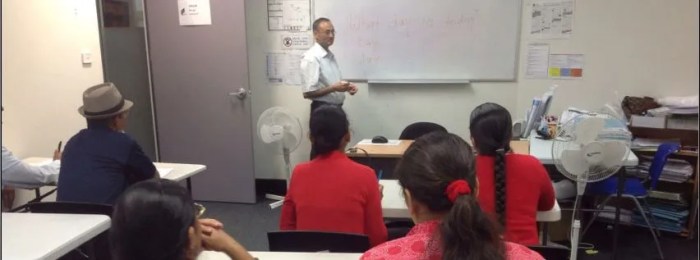English class largely unconcerned with the English has become a topic of increasing concern. This shift away from traditional literary analysis has led to a number of changes in the way English is taught, and has had a significant impact on student learning.
In this paper, we will explore the changing landscape of English education, and discuss the implications for teachers and students.
Exploring the Scope of English Education

English education has traditionally focused on the study of literary classics, grammar, and writing. However, recent years have witnessed a shift away from this traditional curriculum. This shift is driven by a recognition that English education needs to be more inclusive and responsive to the changing needs of students and society.One
of the most significant changes in English education has been the incorporation of diverse perspectives and non-traditional texts. This includes works by authors from different cultural backgrounds, as well as texts that represent a wider range of genres and styles.
This change is important because it allows students to see themselves and their experiences reflected in the curriculum, and it helps them to develop a more nuanced understanding of the world.
The Changing Role of English Teachers

The changing curriculum in English education has also led to a change in the role of English teachers. Teachers are now expected to be more than just purveyors of knowledge; they are also expected to be facilitators of learning. This means that they need to be able to create a classroom environment that is supportive and engaging, and they need to be able to help students develop the skills they need to succeed in the 21st century.One
of the biggest challenges that English teachers face is the need to adapt to new pedagogical approaches. Traditional methods of teaching English, such as lectures and rote memorization, are no longer effective. Teachers need to find new ways to engage students and help them learn.
This means using a variety of teaching methods, such as project-based learning, cooperative learning, and technology-enhanced learning.
Impact on Student Learning: English Class Largely Unconcerned With The English

The evolving English curriculum is having a significant impact on student learning. Students are now more engaged in their learning, and they are developing the skills they need to succeed in the 21st century.One of the most important skills that students are developing in English class is critical thinking.
Students are learning how to analyze texts, identify arguments, and evaluate evidence. These skills are essential for success in college and the workplace.Students are also developing their analytical skills. They are learning how to read closely, identify patterns, and make inferences.
These skills are essential for success in a variety of fields, such as law, medicine, and business.
Future Directions and Innovations

English education is constantly evolving. As the needs of students and society change, so too must the curriculum and the role of English teachers.One of the most important future directions for English education is the use of technology. Technology can be used to create engaging and interactive learning experiences, and it can help students to develop the skills they need to succeed in the 21st century.Another
important future direction for English education is the focus on creativity and self-expression. Students need to be able to express themselves clearly and creatively, and they need to be able to think critically about the world around them. English education can help students to develop these skills.
Question & Answer Hub
What is the traditional curriculum of English classes?
The traditional curriculum of English classes has focused on the study of literature, grammar, and composition. Students have typically read classic works of literature, analyzed their structure and themes, and written essays about them.
How has the curriculum of English classes changed in recent years?
In recent years, the curriculum of English classes has shifted away from traditional literary analysis. This shift has been driven by a number of factors, including the increasing diversity of students in English classrooms, the changing nature of the workforce, and the development of new technologies.
What are the implications of these changes for teachers and students?
The changing curriculum of English classes has had a number of implications for teachers and students. Teachers have had to adapt to new pedagogical approaches, and students have had to develop new skills to succeed in English class.

